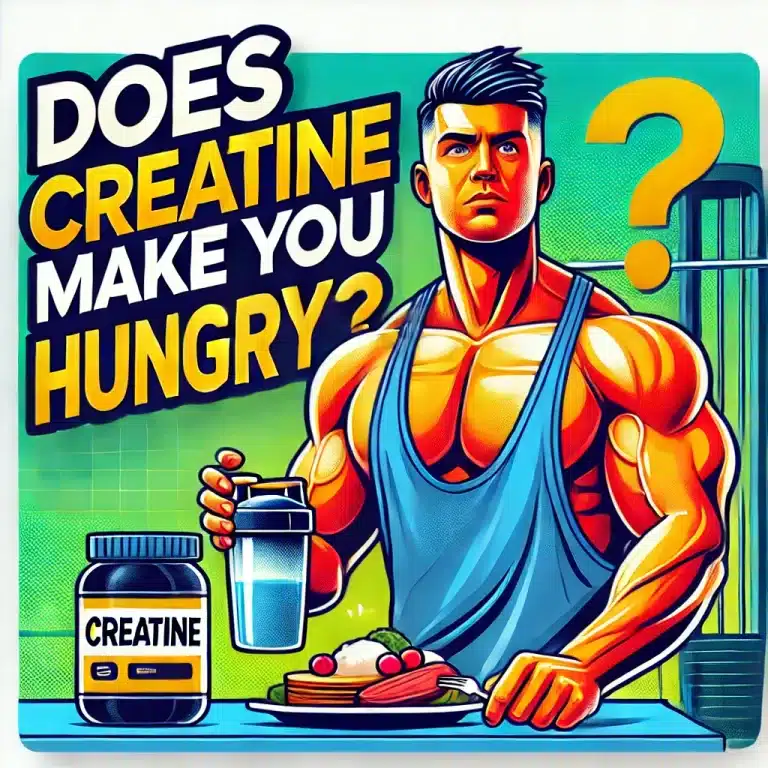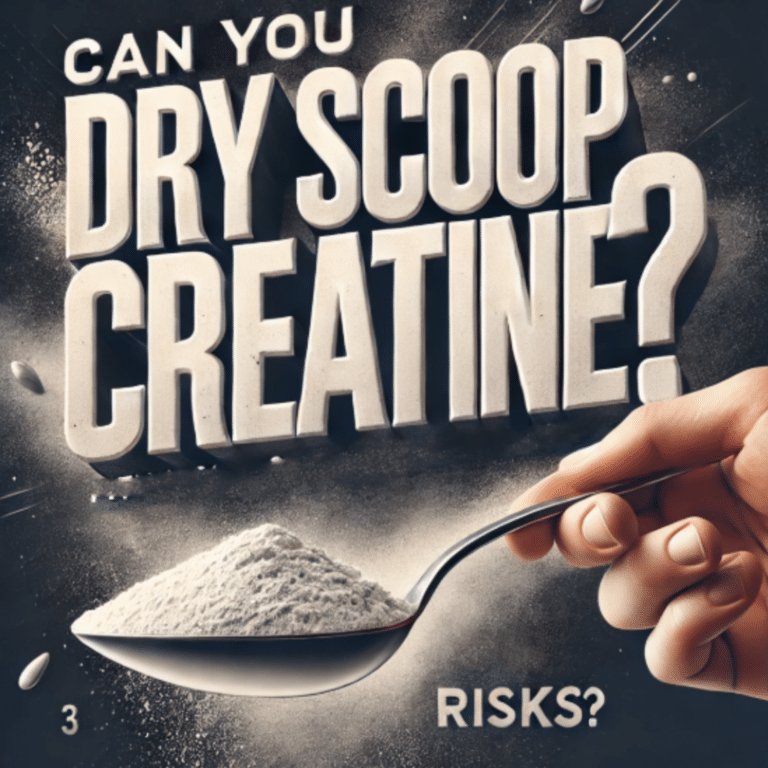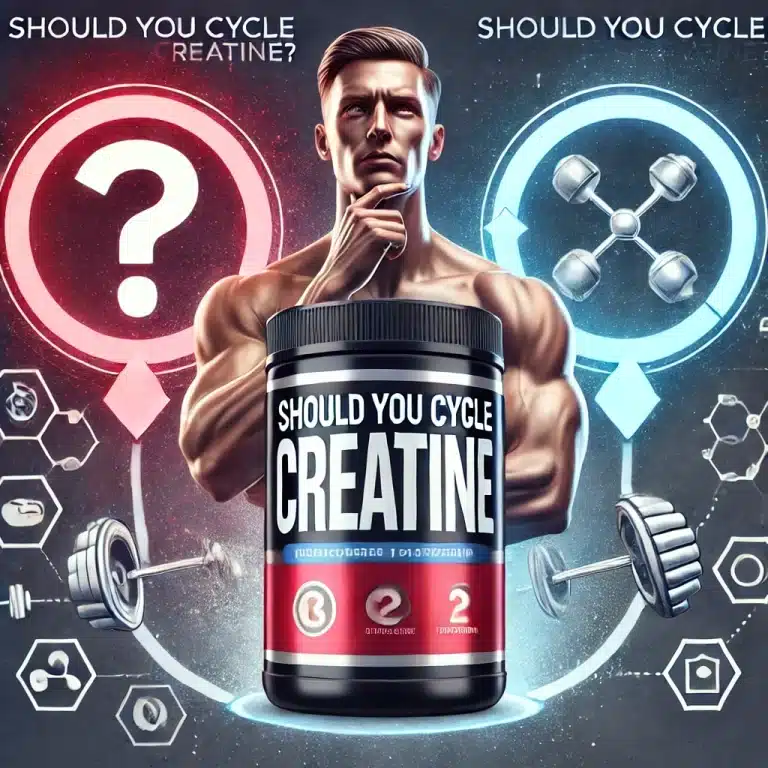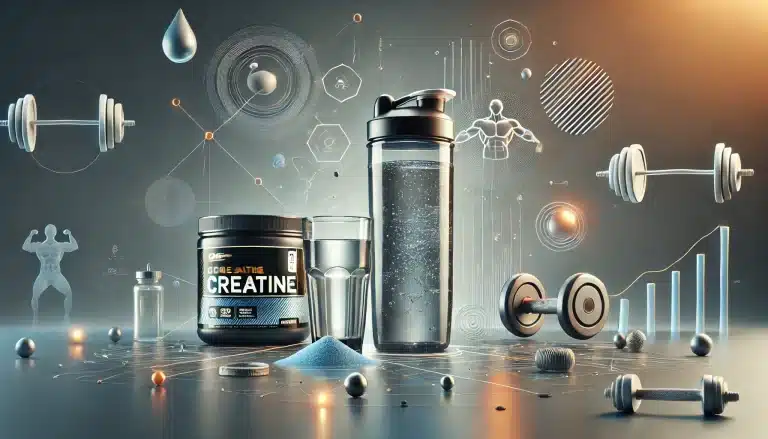Does Creatine Stunt Growth?
You walk into the gym, shake in hand, feeling pumped. The weights are lined up, music’s blasting, and you’re ready to crush another session. But just as you’re about to take that scoop of creatine, someone hits you with it: “Hey, be careful. That stuff stunts your growth.”
Wait… what? You freeze. Does it? Should you stop taking it? Will it mess with your height?
It’s a question that’s been floating around gyms, locker rooms, and sports teams for years. Parents, coaches, and even some trainers have warned about it. And somehow, despite all the research out there, the myth refuses to die.
Creatine is one of the most researched sports supplements in history. Yet, the idea that it can interfere with natural height growth continues to circulate. Maybe it’s because of its association with muscle gain. Or maybe it’s just one of those gym myths that keeps getting passed down from one misinformed athlete to the next. Either way, it’s time to clear the air.
We’re diving deep into this controversy, pulling apart the science, and finally answering the question once and for all: Does creatine stunt growth?
The answer might surprise you.
Where Did the “Creatine Stunts Growth” Myth Come From?
This myth didn’t just appear out of nowhere. It likely stems from a few misunderstandings and misinterpretations of early research. Here’s why people started believing it:
1. Creatine’s Muscle Growth Effects
Since creatine helps build muscle, some assumed it might interfere with natural development, especially in adolescents. The logic was simple: if creatine helps make muscles bigger, maybe it forces the body to allocate resources toward muscle growth instead of overall height.
This assumption ignores basic human biology. Muscle and bone growth are regulated by separate processes in the body. While muscle growth is influenced by resistance training, protein intake, and creatine supplementation, height is controlled primarily by growth hormone (GH), insulin-like growth factor-1 (IGF-1), genetics, and proper nutrition. Simply put, getting stronger doesn’t mean getting shorter.
2. Confusion with Steroids
Another major reason this myth exists? People mistakenly associate creatine with steroids. Steroids can manipulate hormone levels, and certain anabolic steroids, when misused at a young age, have been linked to early closure of growth plates, which could indeed stunt height.
But here’s the key difference: Creatine is NOT a hormone. It doesn’t interfere with testosterone, estrogen, or growth hormone. Instead, it boosts ATP production (the body’s primary energy source for high-intensity movements), which enhances muscle endurance and strength. The misconception likely comes from the fact that both steroids and creatine are used for athletic performance—except one is a safe, natural compound, and the other is a powerful drug with serious risks.
3. Early Misinformation and Fear-Based Warnings
In the 1990s and early 2000s, creatine was still relatively new in the supplement industry. Some poorly designed studies and misleading media reports contributed to public fear. Early concerns included dehydration, kidney stress, and excessive muscle growth—all of which modern science has debunked. But once a fitness myth spreads, it’s hard to kill.
Many parents, coaches, and medical professionals took a better-safe-than-sorry approach. They advised young athletes to avoid creatine without fully understanding the research. Even though modern studies show no negative impact on height, these outdated warnings continue to influence public opinion.
4. Anecdotal Worries & Height Expectations
Everyone has a friend who swears, “I took creatine in high school, and I never grew past 5’9”.” But personal experiences don’t prove cause and effect. Height is largely determined by genetics. If a teenager doesn’t reach their expected height, it’s almost always due to hereditary factors, nutritional deficiencies, or medical conditions—not creatine use.
Think about it: If creatine stunted height, professional athletes who rely on it—like NBA players, Olympic sprinters, and NFL athletes—wouldn’t be some of the tallest and most powerful competitors in the world.
Does Creatine Affect Growth Plates?
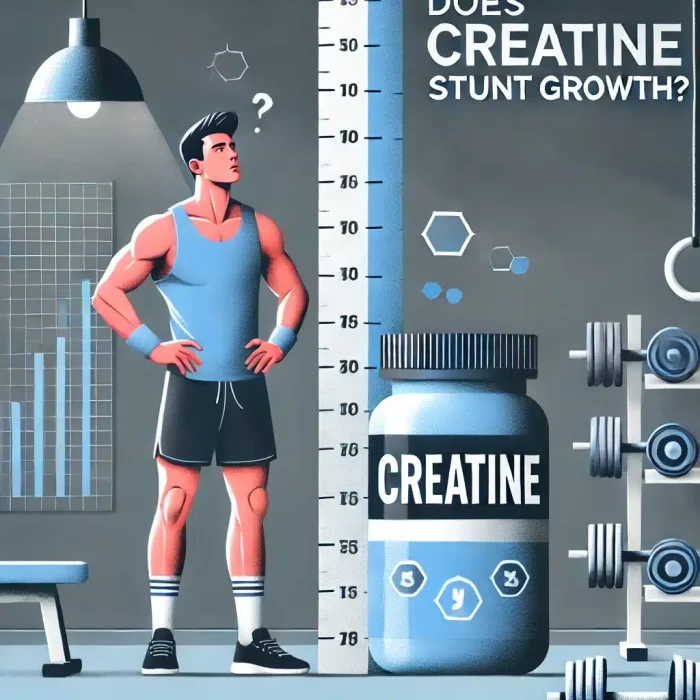
Growth plates, also known as epiphyseal plates, are the soft areas of cartilage located at the ends of long bones in children and adolescents. These plates allow bones to lengthen over time, and when they close (typically between ages 16-21), height growth stops. If creatine were to interfere with these plates, it could, in theory, stunt growth.
But here’s the truth: Creatine has no known effect on growth plates. No studies have ever shown a connection between creatine use and early closure or dysfunction of growth plates. The process of bone growth is primarily controlled by genetics, nutrition, and hormones like growth hormone (GH) and insulin-like growth factor-1 (IGF-1)—not creatine.
Understanding What Affects Growth Plates?
For growth plates to function properly and contribute to height development, they require a steady supply of nutrients, optimal hormone levels, and a lack of stress-related disruptions. Factors that can negatively impact growth plates include:
- Hormonal imbalances – Excess estrogen or testosterone can cause growth plates to close too early, limiting height potential.
- Nutritional deficiencies – A lack of key vitamins and minerals, such as calcium, protein, vitamin D, and magnesium, can impair bone growth and delay the fusion of growth plates.
- Chronic illness or medical conditions – Diseases such as hypothyroidism, growth hormone deficiency, or malabsorption disorders can interfere with normal bone development.
- Severe stress and overtraining – Overtraining, excessive weightlifting at a young age, or prolonged stress can impact overall development, leading to potential issues with height growth.
The Role of Creatine in Bone and Growth Plate Health:
Rather than harming growth plates, some research suggests that creatine may support bone health. Studies on creatine supplementation have found that it enhances bone mineral density, which can be particularly beneficial for young athletes engaging in high-impact sports. Stronger bones mean a lower risk of fractures and better overall skeletal development.
Additionally, creatine can improve muscle strength and recovery, which may indirectly benefit height by helping young athletes maintain a higher level of activity without excessive fatigue or injury. When paired with a well-balanced diet and proper training, creatine could contribute to a healthier and more resilient skeletal structure.
What Does Science Say?
Let’s look at the facts. Numerous studies on creatine supplementation show zero impact on height, bone growth, or hormonal development. If anything, creatine may support better training adaptations, leading to stronger bones and better athletic performance.
A study published in the Journal of the International Society of Sports Nutrition found that adolescent athletes who took creatine showed no signs of growth suppression. Instead, they performed better, recovered faster, and gained lean muscle.
Another research review analyzed multiple long-term studies and concluded that creatine has no negative effects on growth, metabolism, or hormonal function in young athletes. It instead highlighted improvements in muscle recovery, power output, and endurance—all beneficial for developing bodies.
Additionally, research shows that creatine does not affect testosterone, HGH (human growth hormone), or IGF-1 (insulin-like growth factor-1)—the primary hormones responsible for height development. These hormones are crucial during puberty, and if creatine had any disruptive effects, it would have been identified in clinical studies.
A large-scale review of dietary supplements and their effects on adolescents found no evidence linking creatine to stunted height, bone damage, or growth complications. Instead, it emphasized that creatine can serve as an effective and safe tool for improving athletic performance and muscle recovery when combined with proper training and nutrition.
If there were even a slight chance that creatine interfered with growth, researchers would have flagged it. Instead, the overwhelming scientific consensus supports its safety, making it one of the most trusted supplements in sports nutrition.
Who Might Be at Risk?
While creatine is safe for most people, some individuals might need to be cautious. Here’s who should be careful:
Athletes Who Overdo Supplementation – More creatine does not equal more gains. Some individuals believe that taking excessive amounts of creatine will boost results faster. However, the body can only store so much, and the recommended 3-5 grams per day is sufficient. Overloading on creatine can lead to minor digestive discomfort, but it does not cause long-term harm when taken responsibly.
People with Pre-Existing Kidney Issues – Although multiple studies have shown that creatine does not harm healthy kidneys, those with pre-existing kidney disease or impaired function should consult a doctor before using it. Since creatine is metabolized through the kidneys, individuals with kidney dysfunction may need to monitor their intake more carefully.
Teenagers with Poor Nutrition – Creatine is a supplement, not a replacement for proper nutrition. If a teenager is not consuming enough protein, vitamins, and essential minerals, they may not grow properly—but this is due to poor diet, not creatine. Relying on supplements while neglecting whole foods can lead to nutrient deficiencies, which could impact development.
Those Taking Certain Medications – Some medications, particularly those that affect kidney function or fluid balance, may interact with creatine. If you are on diuretics, NSAIDs, or other medications that impact renal function, it’s best to check with a healthcare provider before taking creatine.
People Who Don’t Drink Enough Water – While creatine does not cause dehydration, it does increase water retention in muscle cells. This means individuals who are not hydrating adequately might experience muscle cramping or discomfort. Staying properly hydrated ensures that creatine works efficiently and helps maintain overall bodily function.
Final Verdict: Does Creatine Stunt Growth?
No.
There is zero scientific evidence that creatine stunts growth.
It doesn’t mess with hormones, growth plates, or skeletal development. Instead, it helps with muscle growth, strength, recovery, and even bone health.
What stunts growth? Poor nutrition, lack of sleep, and not eating enough calories. That’s where young athletes should focus.
If you’re 16 and healthy, creatine is safe when used correctly. But it’s not a shortcut. You still need to train hard, eat well, and recover properly.
So next time someone says, “Creatine stunts your growth,” ask them this—Where’s the proof? Because science doesn’t back the myth.
What does? Just outdated fear.


